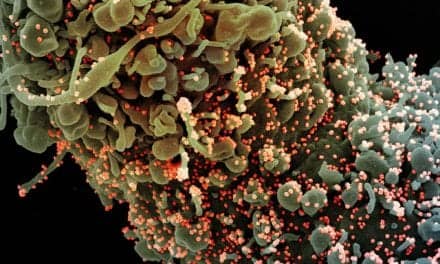Two months after birth, COVID antibodies were detected in 98% of Infants born to vaccinated mothers, according to research published in JAMA. Data showed vaccination during pregnancy resulted in more lasting antibody levels in infants, when compared to babies born to unvaccinated, COVID-infected mothers.
The study, conducted by researchers at Massachusetts General Hospital, included individuals vaccinated with two doses of an mRNA vaccine or infected at 20 to 32 weeks’ gestation, when transfer of antibodies through the life-giving placenta has shown to be at its peak.
Titers – or COVID antibodies – were higher in vaccinated mothers and their umbilical cord blood at delivery than in those study participants infected with COVID. After two months, 98% of the infants (48 of 49) born to vaccinated mothers had detectable levels of the protective Immunoglobulin G (IgG), the most common antibody found in blood. At six months, the researchers looked at 28 of the infants born to vaccinated mothers and found 57% (16 of 28) still had detectable IgG. That was compared with just 8% (1 of 12) born to infected mothers.
“While it’s still unclear just how high the titer needs to be to completely protect an infant from COVID, we know anti-spike IgG levels correlate with protection from serious illness,” says Andrea Edlow, MD, MSc, a Maternal-Fetal Medicine specialist at MGH, director of the Edlow Lab in the Vincent Center for Reproductive Biology and co-senior author of the publication. “The durability of the antibody response here shows vaccination not only provides lasting protection for mothers but also antibodies that persist in a majority of infants to at least six months of age. Many interested parties from parents to pediatricians want to know how long maternal antibodies persist in infants after vaccination, and now we can provide some answers. We hope these findings will provide further incentive for pregnant people to get vaccinated, especially with the emergence of new variants of concern like Omicron.”
The authors note limitations to their research, including the small study cohort, delays in follow-up with the infected group (due to participants’ availability and COVID-19 surges in Boston), as well as reporting of titers as opposed to clinical outcomes.
“Pregnant women are at extremely high risk for serious complications from COVID,” says Galit Alter, PhD, core member of the Ragon Institute of MGH, MIT and Harvard, and co-senior author of the study. “And given the lag in development of COVID-19 vaccines for infants, these data should motivate mothers to get vaccinated and even boosted during pregnancy to empower their babies’ defenses against COVID.”










